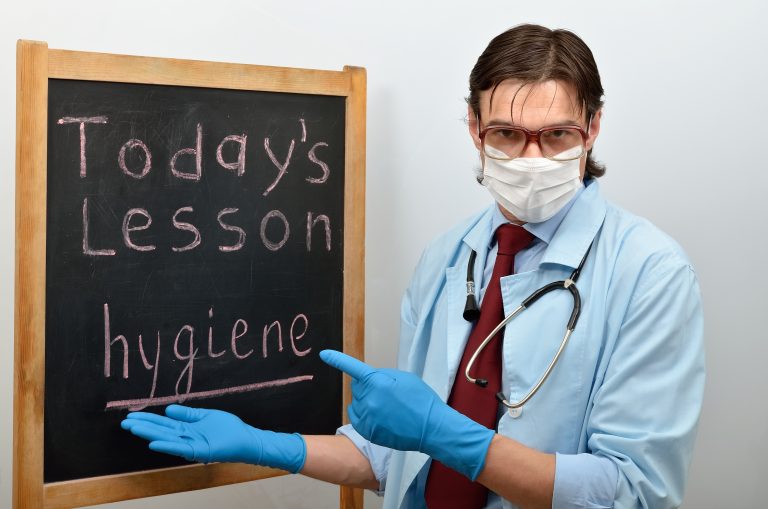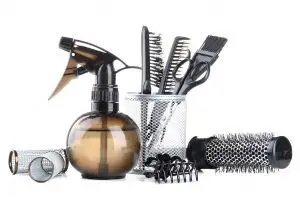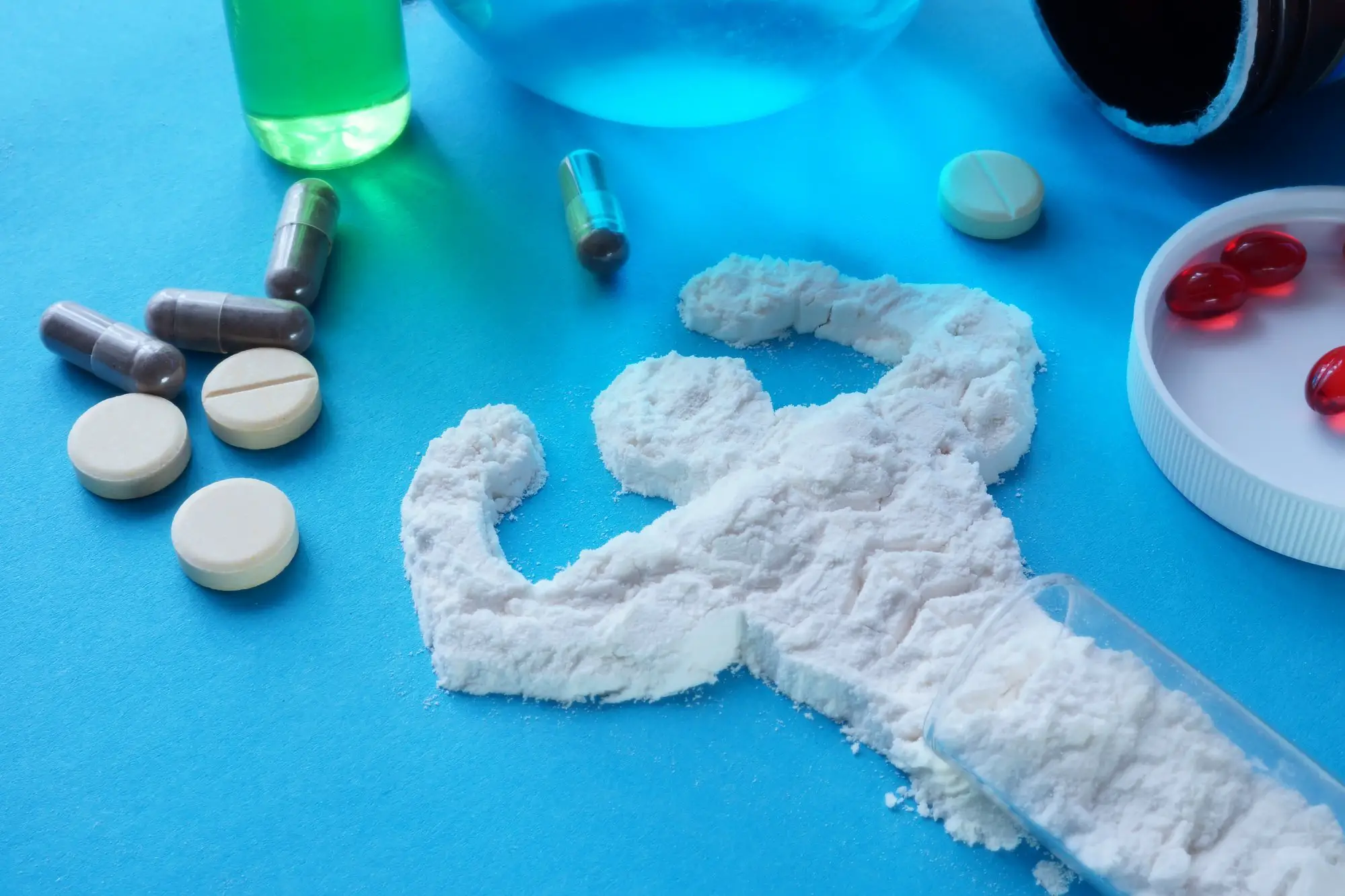
Page Contents
When you first learn that you are losing your hair, your hygiene is probably not the first thing that comes to mind. In fact, hygiene is probably not the second or the third thing to come to mind either.
However, hygiene should be one of the first things that you think about when it comes to the health of your hair. This is more so as your hygiene habits can be easily changed, often without any extra costs or inconveniences.
But, while some things about hygiene can help your hair, there are a few things about hygiene that you should be wary of. Products, in particular, can be helpful or damaging to your hair when you use them for hygiene.
So, looking at hair loss causes and how hygiene can affect some of them is a great place to start. You may even find that your hygiene habits already leave nothing to be desired – don’t take hygiene too far.
What Is Hair Loss?
You might think that hair loss is the hairs you see in the drain or on your brush in the mornings. However, that part is only half of what actually makes up hair loss. The normal number of strands of hair you lose every day, for example, hardly is something anyone would consider to be hair loss.
That is because losing some hair every day is normal and to be expected. But, even if you are losing hair in larger amounts, you may not be truly having hair loss. That is because there is a slight difference between hair loss and hair shedding.
Shedding your hair can be caused for a number of reasons, just like hair loss. The main difference with the two types of loss is their permanence. When hair sheds, it often grows back all on its own without any intervention being necessary.
Hair loss, on the other hand, is where your hair falls out and does not grow back. In some cases, hair does grow back, but it does so with small vellus hairs. These get smaller and smaller until they don’t grow back at all instead of outright falling out, but the result is still the same.
Hair loss is not something that remedies itself with time. Instead, you have to actually do something for your hair in order to get it to grow again. There are countless causes of hair loss, causes that can even be divided up into ones that affect young men or old men more or women more and many other ways.
Though hygiene may not affect many of the hair loss causes, it can still be a huge help in many cases when it comes to getting your hair back. But, if you don’t believe me, let’s look.
Common Causes of Hair Loss Related To Hygiene
There are long lists of hair and scalp problems that can cause hair loss. Some of the most popularly listed ones involve things like genetics, which aren’t really affected by hygiene. However, a few hair loss problems can be directly linked to your hygiene or lack thereof.
For example, there are a handful of bacteria and fungal infections that can result in hair falling out in patches sometimes. These infections tend to only spread if you are not washing your hair, and you can sometimes avoid getting them completely if you are taking care of your hair properly.
Then, not washing your hair can also cause sebum to build up. Sebum is like a lubricant for your hair, and it is also what makes your hair oily after a while. When this builds up, it not only makes your hair look disgusting, but it also clogs up your scalp’s pores.
Any blockage of your scalp’s pores is a bad thing that can damage the cells of your scalp and can cause hair loss eventually. Speaking of blocked pores, dandruff can do the same thing if it is allowed to build up.

Besides those, a dirty scalp can just plain itch sometimes. That is not to mention headlice or other things that can make your scalp itch. In either case, itching for any reason definitely damages your scalp and should be avoided.
Just think of what all might be under your fingernails that you are scratching into the pores. Yep. That is bad for your scalp as well, which is why refraining from itching is an important – if lesser thought of – part of your scalp’s hygiene.
There are a few other hair hygiene practices that can affect hair loss, but those are the most common.
When You Should Change Your Hygiene Habits
One thing about hygiene is that you don’t want a lot of stuff in your hair. Products can build up just as much as dirt or other things can and can be damaging even besides that. If you have to scrub at your hair or work to get out products, it is clearly a hygienic need that you should find some way of using less.
Speaking of gunk, coloring, perming, and other stuff has tons of chemicals that can build up on your hair too. Doing any of these frequently is something that you should change.
If you habitually wash your hair down to the roots, that is something you should change too. It is your scalp that needs washed. Washing the ends of your hair is often unnecessary. Letting the shampoo run through the rest of your hair when you rinse is often enough for the ends.
Also, unless there is something like buildup on your scalp, you shouldn’t be scrubbing hard. Massaging your scalp is one thing, but you shouldn’t be damaging your scalp by scrubbing. Using too much shampoo will strip your hair of its protective layers too, so only use what you need.
Another change you may need is using conditioner. Conditioner is the moisturizer that can put up a barrier around your hair to protect it from the elements and from damage. It also helps prevent dirt from sticking to your hair to a small degree, keeping your hair that much cleaner.
Finally, for those who use hair extensions, don’t try to keep your extension in as long as you can. These need to be replaced in your hair periodically. Most good extensions can last about 2 to 3 months, so don’t try to wear it for longer than that.
Related Reading
When You Shouldn’t Change Your Hygiene Habits
I think that most could improve their hygiene in some way when it comes to their hair. However, sometimes it is best for your hair if you don’t change anything here at all. There is a point when cleaning your hair too much becomes damaging, after all.
In short, if your hair is healthy and there are no problems with it at all, then you should probably stick to whatever you are doing for it. Don’t change your hygiene habits when you travel, etc., as it is even more important then.
Another case in which you should not change anything is when you get something like a hair extension. Yes, you want to keep your extension looking nice for as long as possible, but neglecting your hair’s hygiene to do so is a bad idea.
Even if your shampoo is meant for strengthening your hair strands, you should only wash your scalp. If you just wash your hair and then go about your day without doing anything to it, that is a good thing.
While your hair strands are wet, it doesn’t have as much elasticity, and it is more easily damaged. If your hair is curly, tending it while it is wet may be a necessity. But, if your hair is straight, you shouldn’t need to start brushing your hair while it is wet.
Finally, if you find yourself in too much of a hurry to brush your hair any more than the few quick strokes you need to just barely get it looking good, that is a good thing! Brushing your hair more is only excessive, and most of the time is not needed.
Supposedly, the 100 strokes is meant to spread your natural sebum around properly, but it is debatable if it is worth it or not.
A Few Other Hygiene Tips For Your Hair
Besides the most common hygiene practices, there are a few other things that technically count as hygiene that you can do to help your hair as well.
Swimming comes with a lot of potential damage to your hair. Besides the cocktail of chemicals that are supposed to be in the pool to start with, there is often all sorts of other nasty stuff in pools. Even in rivers and things, there can be pollutants of all sorts.
So, hair hygiene here should have you wearing a swim cap over your hair every time you swim. If that is not possible, at least rinsing your hair afterward is a good thing to do. If you can, get a shampoo specially formulated swimmers and wash your hair with that after you swim.
You should also limit the use of curling irons and straighteners. These can melt in any chemicals that might be on your hair – which is hardly hygienic – but also causes damage.
Though how tight your hairstyle is might not seem related to hygiene, it actually is. If you wear your hair too loose, dirt and leaves etc. can work their way deeper to your scalp easier. Too tight, on the other hand, will make your head more likely to sweat, which both smells bad and is just as bad as dirt.
Finally, don’t just live with dandruff; treat it. While it might not be enough to be considered a bother, it should be treated instead of lived with. It might be an ingredient in the shampoo or another product that you are reacting to, or you might simply need an ant-dandruff shampoo.
Hygiene For Your Grooming Tools!
Perhaps one of the most important and least thought of hygiene tips for your hair is cleaning other things! Think about everything you use on your hair, from your brush to your comb to your curling iron. Now think about the last time that you washed or disinfected each of those items.

Most likely, cleaning your hair grooming supplies might be something that hasn’t even crossed your mind. If you haven’t ever done this, or can’t remember the last time, then you should clean those soon.
For metal and plastic, most of them can be either washed with a soapy rag, sprayed with disinfectant, or both. Where sanitizing gets a little trickier is when it comes to hair ties, headbands, and other things. While hats can and should be washed regularly, headbands and hair ties are more difficult.
You can spray these with disinfectant every now and then or soak them in it for an hour. At any rate, disinfecting your hair supplies is something that is best done all at once. Doing only some of your hair items and then putting them beside the non-disinfected ones will only re-contaminate them.
Conclusion
As you can see, there are simple hygiene changes that can help prevent hair damage. Most of the hygiene changes are ones that you can do without any great cost or effort.
What is perhaps most important is actually to keep in mind that not everyone’s hair is the same. Of course, you likely know this, but you may not know that this affects hygiene as well. For example, oily hair needs to be washed more often.
Those with particularly oily hair may need to wash it every day with shampoo in order to prevent greasiness. On the other hand, chemically treated hair tends to be drier, so you should use less shampoo on it. The same goes for as you get older, as you normally start making less sebum then.
So, take a look at what you do now for your hair’s hygiene ad see where you might need to improve. Make a list of hygiene things that you should add and start doing it!






